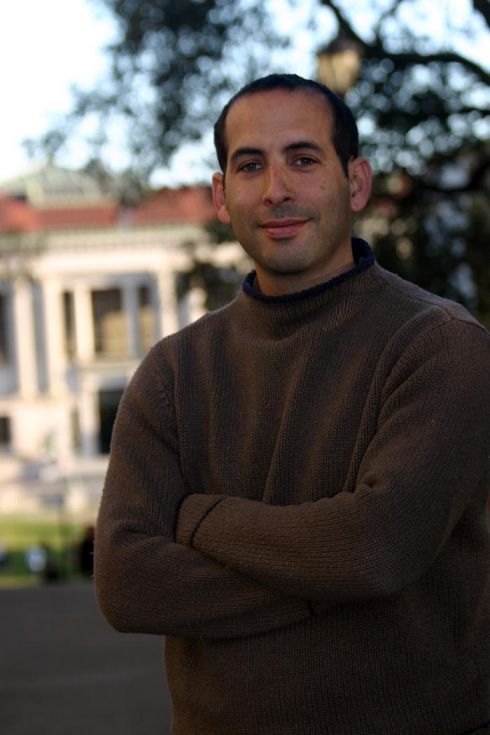Research data worth millions of dollars each lie like a stone that cannot be turned instead of being used by researchers to develop drugs and methods of diagnosis and treatment, says Dr. Eran Halperin of Uni' Tel Aviv, the main signatory of the article published in Nature Genetics

In the chilling sci-fi film Gattaca (1997), Ethan Hawke stars as a man with 'inferior genes' who uses a borrowed identity to escape a hopeless fate. The film presents a very real fear that today surrounds everything related to the privacy of genetic information - the fear that this information could be used against us. In Israel, we are exposed to this issue in everything related to the current struggle being waged by organizations working to protect privacy against the government and the chairman of the Knesset's Science and Technology Committee, MK Meir Shetrit, who are trying to promote the establishment of a database containing genetic data of the entire population.
About a year ago, following an article that exposed a weakness in the way genetic information is presented in databases based on genetic studies of diseases, the National Institutes of Health (NIH) ordered to prevent public access to these databases, access required by researchers seeking to study the human genome and develop drugs, treatments and diagnostic methods Advanced. These databases do not display the genetic information of the research participants, but statistical data on the DNA anywhere in the genome; Nevertheless, the article showed that it is possible to identify whether a person participated in the study based on this information.
Now an Israeli researcher, Dr. Eran Halperin from the Blavatnik School of Computer Science at Tel Aviv University and the Department of Molecular Microbiology and Biotechnology at the university, is proposing a way that allows access to these repositories, which are blocked by the NIH, so that the participants in the studies from which these samples were taken can be identified For them it will be limited and in fact almost impossible.
"Unfortunately, the reflexive response of the NIH blocks the ability to move forward in genetic research" says Dr. Halperin. "We must allow the valuable genetic information to once again be accessible to scientists all over the world and this can be achieved without compromising security." Halperin says.
In an article published in this month's issue of the journal NATURE GENETICS, Halperin, and researchers from the University of California at Berkeley and in France, write that they have developed a mathematical formula and software that make it possible to determine the amount of genetic information that can be disclosed to the public without compromising the disclosure of the identity of the research participants.
In genetic association studies, they try to find links between the genetic code and conditions such as autism or serious diseases such as cancer. People who know that they carry a problematic genetic load will be able to avoid environmental influences that accelerate the development of the disease or worsen its condition. Since there is 99% similarity in the genome between the different humans, in these studies the scientists concentrate on certain locations in the genome called SNPs (pronounced 'snip'), which tend to be different throughout the human population (for example, in a certain place in the genome, in some people the "genetic signal" is found 'A' and in others 'G'). The scientists gather such information on healthy people and the sick population, and try to find the differences between the distribution of the snipes in the two populations. This type of information accumulated over a large number of studies can reveal additional discoveries, which lead to a better understanding of the genetics of these diseases, so it is important to allow easy and transparent access to this type of data to the scientific community.
Dr. Halperin and his team developed a mathematical formula and a computer program that implements it, capable of determining which Snipes can be accessed by the public, without revealing details about the identity of people who participated in the study. In addition, Dr. Halperin and his team show that, contrary to the claim of the study in the journal Plos Genetics, in reality it is not easy to determine the presence of a person in a genetic study conducted on several thousand people, even when using snippets from the entire genome.
"We were able to determine what proportion of the genetic information could be revealed without compromise about the identity of the people who participated in the study," said Dr. Halperin. "This means that the enormous efforts invested in collecting the information will not go down the drain and can be used by scientists in the future."

3 תגובות
I think this whole fear is completely stupid, then they will find out that the genome of person X exists in the genetic database, so what? What a disaster will happen, will someone read his thoughts? It seems to me like a disproportionate drift that just causes the delay of important studies.
(I wonder what the situation is today, 6 years after the article was written)
Today's encryption is tomorrow's hacking.
The Israeli researchers are simply brilliant.